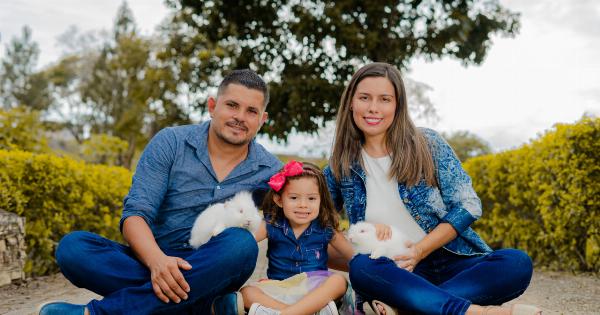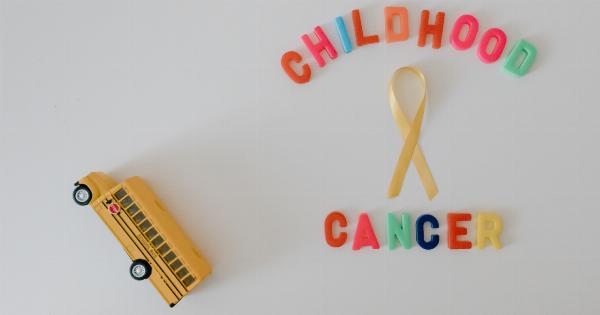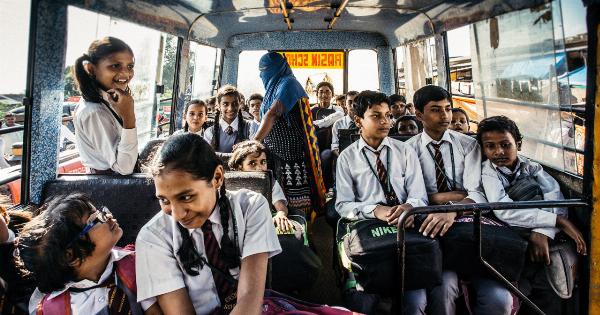Cancer is a devastating disease that can wreak havoc on anyone’s life. But when a child is diagnosed with cancer, it can be especially heartbreaking. Childhood cancer affects not only the child but also the entire family and their support system.
Fortunately, there are ways to help children battling cancer and one of those ways is through the healing power of nature.
Nature Therapy
Nature therapy, also known as ecotherapy or green therapy, is a treatment that utilizes nature to promote wellness. This form of therapy has been proven to be beneficial in treating many physical and mental health issues, including cancer.
A study conducted by the University of Michigan found that exposure to green spaces reduced stress levels in children undergoing cancer treatment. Spending time in nature can help children undergoing cancer treatment by providing a calming and soothing environment that can promote healing.
Outdoor Play
One of the simplest ways to expose children to the healing power of nature is through outdoor play. Playing outside can provide children with a sense of normalcy, which is especially important when they are going through treatment.
Outdoor play provides children with opportunities to run and jump, which can help keep them active and prevent muscle wasting. In addition, the sunshine can provide them with much-needed vitamin D, which can help boost their immune system and improve their overall health.
Gardening
Another way to incorporate nature into cancer treatment is through gardening. Gardening is a fun and therapeutic activity that can help children undergoing cancer treatment.
Gardening provides children with opportunities to be creative, learn new things, and engage with the natural world. Moreover, gardening provides children with a sense of accomplishment, which can help improve their self-esteem and overall well-being.
Animal Therapy
Animal therapy is another form of nature therapy that can be beneficial for children with cancer. Studies have shown that spending time with animals can have a positive impact on a child’s mental and physical health.
The presence of animals can help reduce anxiety and stress levels, which is especially important for children undergoing cancer treatment. In addition, spending time with animals can provide children with a sense of comfort and companionship.
Adventure Therapy
Adventure therapy is a type of nature therapy that involves outdoor activities such as hiking, rock climbing, and camping. This form of therapy can help children build self-confidence, improve their physical health, and develop a sense of resilience.
Adventure therapy can also provide children with a sense of accomplishment, which can help improve their self-esteem and overall mental health.
Nature-Based Art Therapy
Art therapy is a type of therapy that uses art to promote healing and well-being. Nature-based art therapy is a form of art therapy that focuses on the natural world.
This form of therapy can help children express their emotions and find meaning in their experiences. Creating art can also help children build self-confidence, improve their communication skills, and develop a sense of mastery.
Green Spaces in Hospitals
Green spaces in hospitals can also improve the healing experience for children with cancer. Studies have shown that exposure to green spaces can reduce stress levels, improve recovery rates, and improve overall well-being in patients.
Hospitals can incorporate green spaces, such as gardens and parks, into their design to provide patients with much-needed access to nature.
The Role of the Environment
The environment can play a significant role in a child’s ability to recover from cancer. A sterile hospital room can be a stressful and isolating environment, which can hinder a child’s recovery.
By incorporating nature into a child’s treatment plan, healthcare providers can provide a more holistic approach to cancer treatment.
The Importance of Support Services
Support services, such as social workers, psychologists, and child life specialists, can play a crucial role in helping children with cancer cope with their illness.
These professionals can provide emotional support, help children navigate the treatment process, and provide resources to help families cope. Incorporating nature into support services can also be beneficial. For example, social workers can organize outings to local parks, child life specialists can provide art therapy, and psychologists can incorporate nature into their therapy sessions.
The Importance of Family Support
The support of family members can also play a crucial role in a child’s ability to recover from cancer.
The entire family is impacted by a child’s cancer diagnosis, and it is essential for them to have access to resources that can help them cope. By incorporating nature into family support services, healthcare providers can provide families with a more holistic approach to coping with cancer.





























